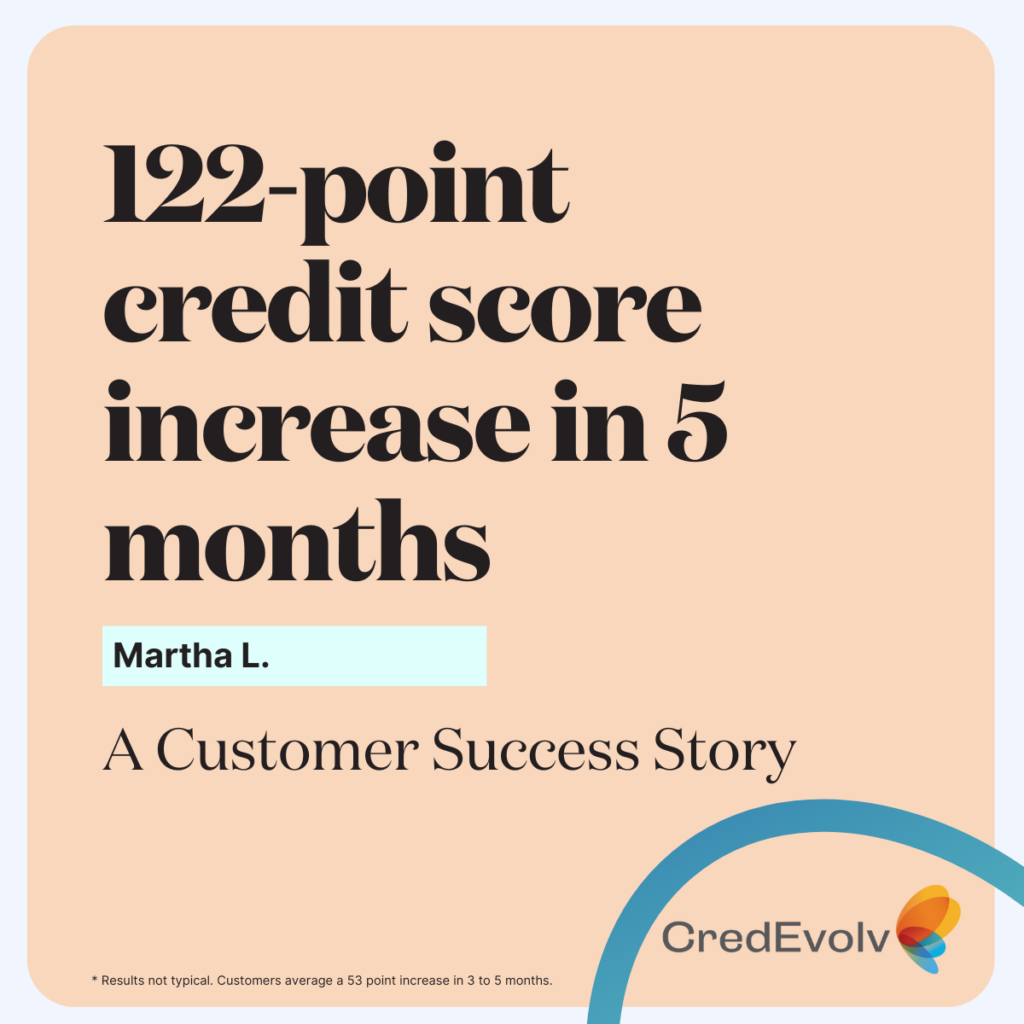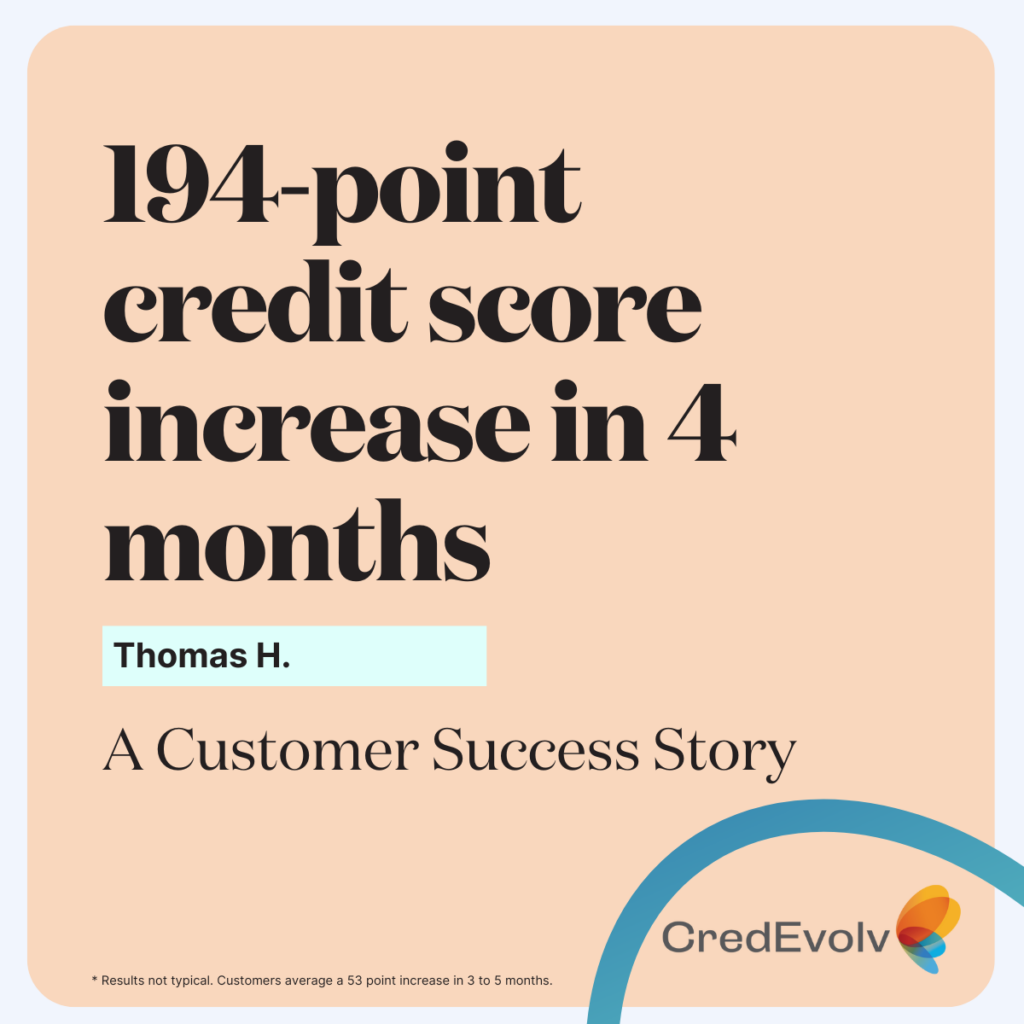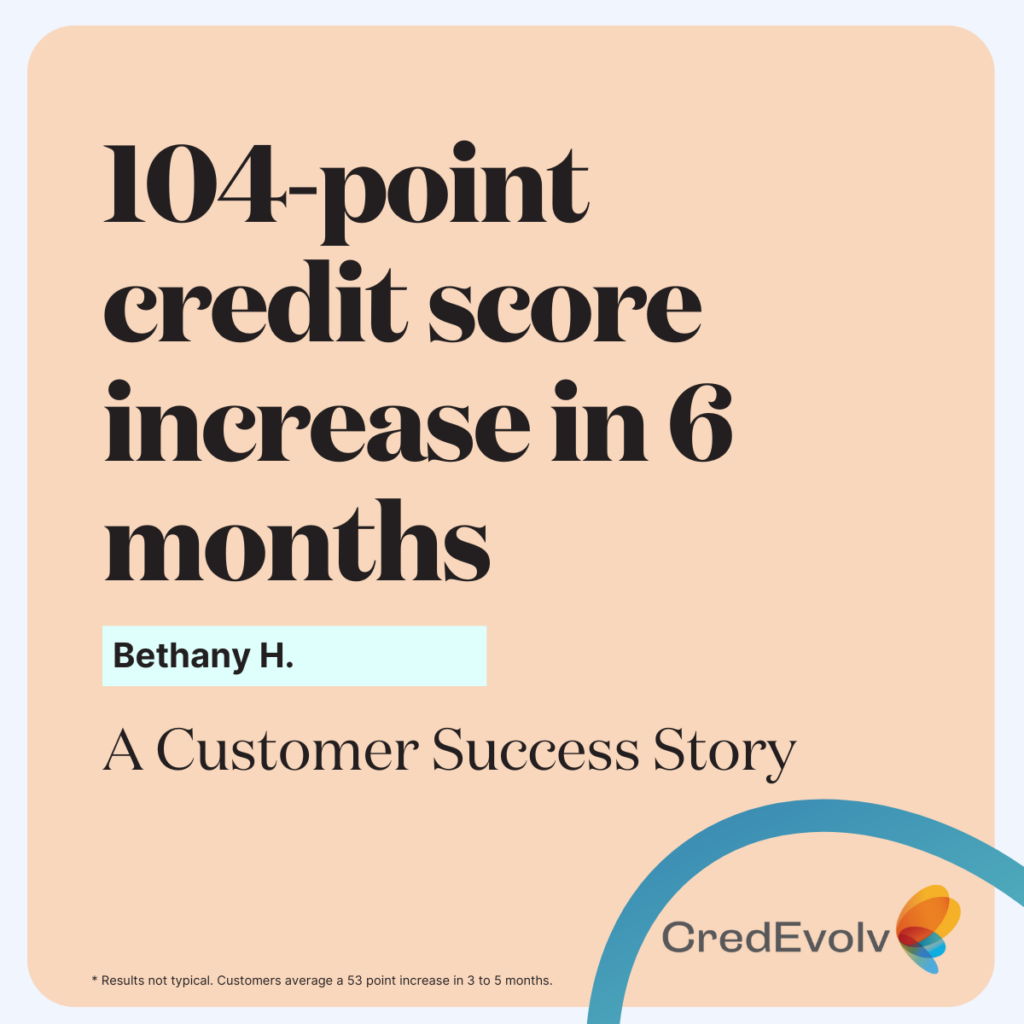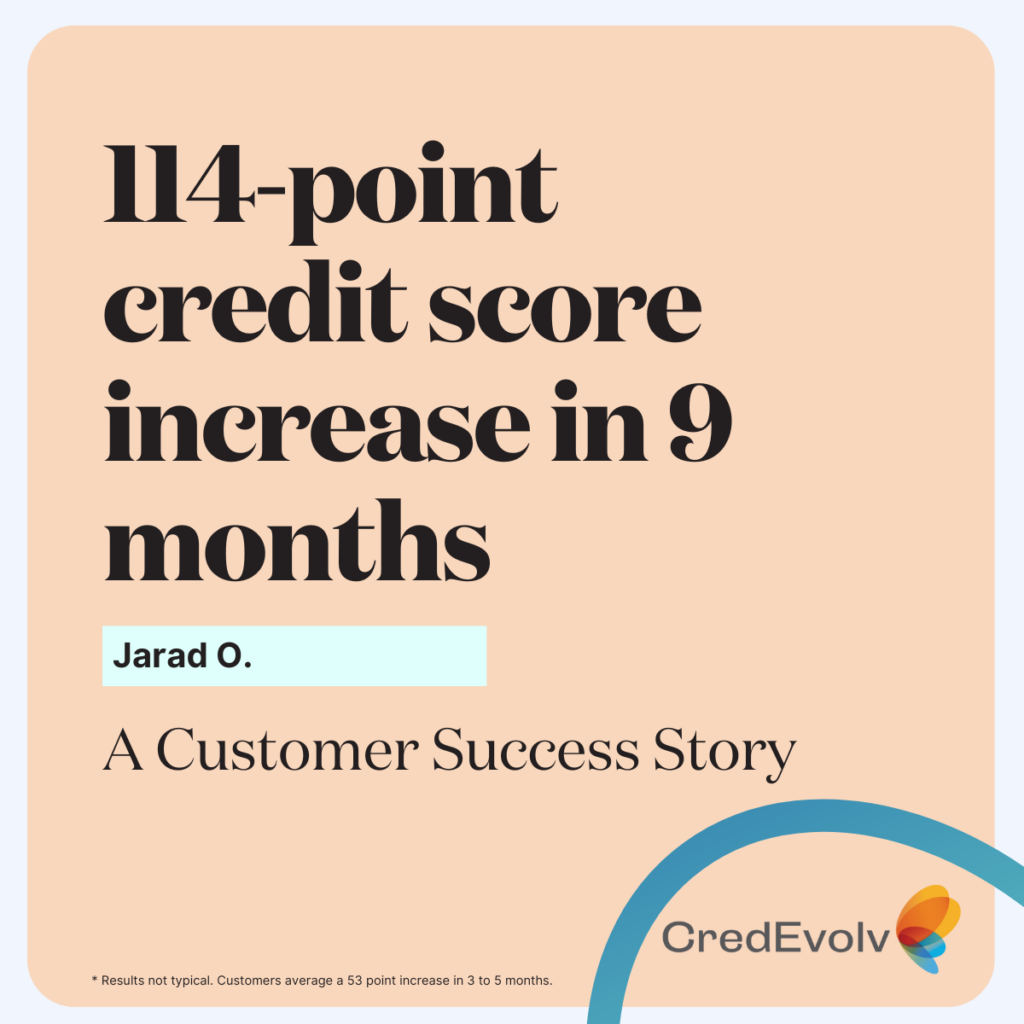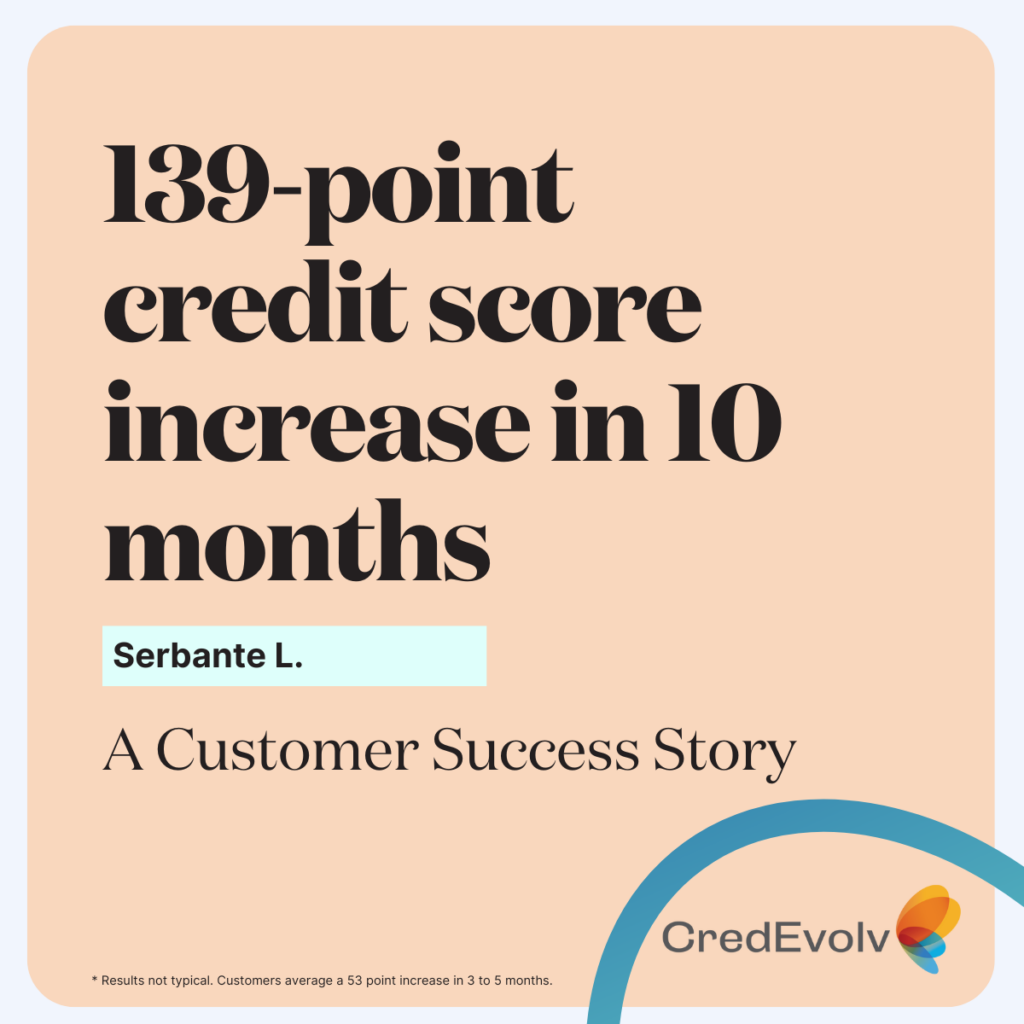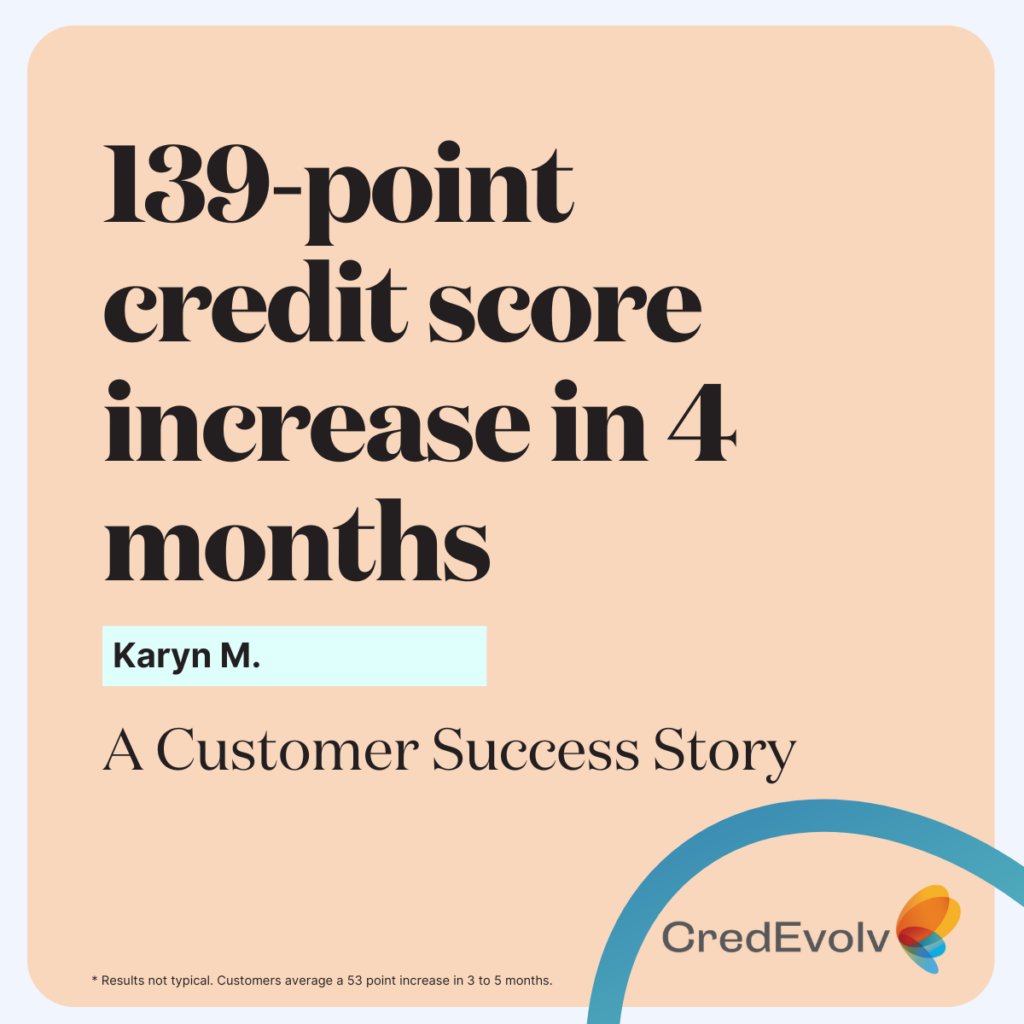To have good credit, you have to pay back the money you borrowed. You also have to make those payments on time, every time, and not go overboard with your balances.
When Jose came to us, he had a 630 credit score. As he paid down his credit card balances, his credit counselor was able to remove a few late payments from his credit report. This combined effort catapulted his score to 740 in 7 months, leaving his personal goal of 680 in the dust!
Jose V. learned these things on the CredEvolv platform. Lo and behold, his original 630 credit score improved considerably.
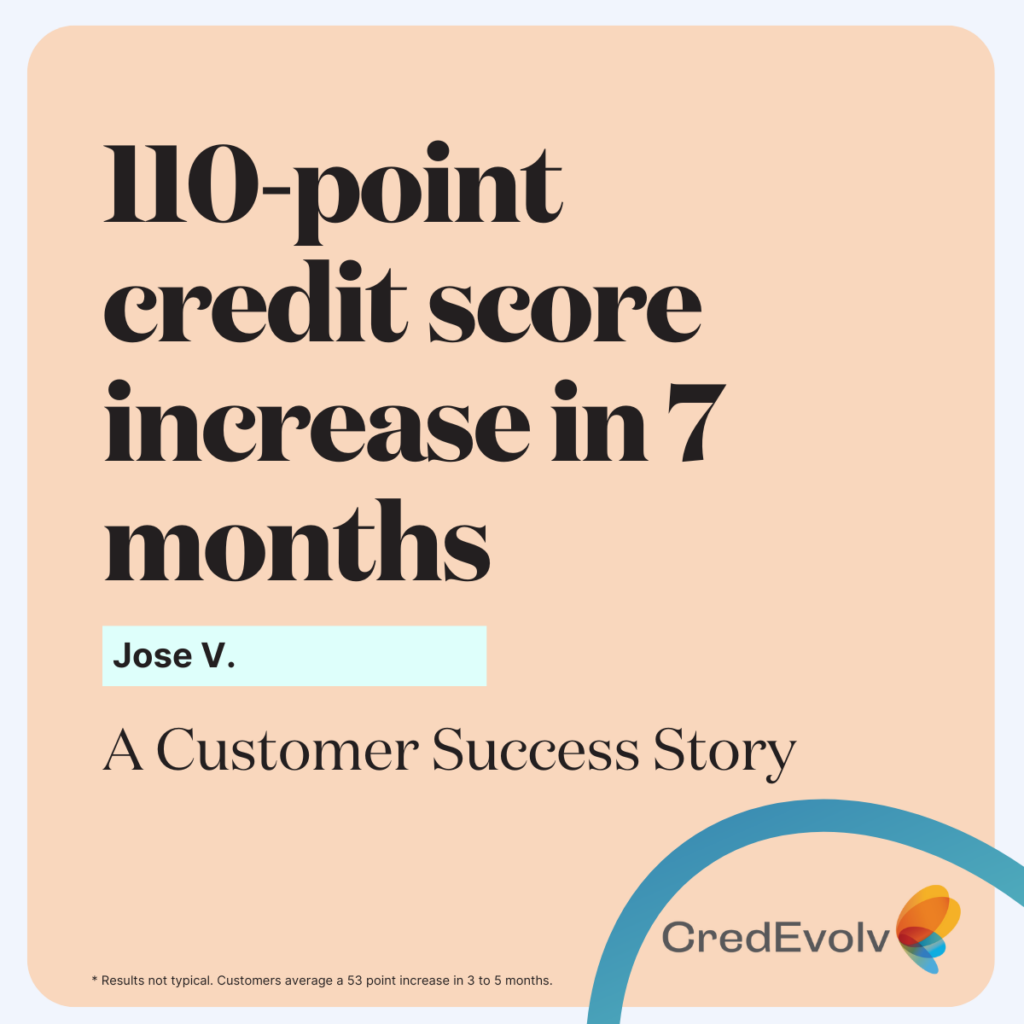
What can and can’t be removed from my credit report to raise my 630 credit score?
As we’ve mentioned in a previous Credit Education blog, understanding what can and cannot be legally removed from your credit report is essential. Boosting your 630 credit score isn’t about erasing past financial history. It’s about making sure your report is correct and taking the right steps to improve your financial health.
There’s a lot of confusion surrounding credit repair. Some companies claim they can eliminate all negative items from your credit history. Unfortunately, that’s not how it works. In fact, removing accurate negative information is against the law.
The Fair Credit Reporting Act (FCRA) requires credit bureaus to report only verified, factual information. For example, if you’ve missed a payment or defaulted on a loan, that record can legally stay on your report for up to seven years. Bankruptcies may remain for up to 10 years, depending on the type.
At CredEvolv, we believe in transparency and honesty. The reality is that no company or individual has the legal ability to remove valid negative marks from your credit report. However, the certified, nonprofit credit counselors on our platform can assist you in disputing inaccuracies or outdated details that may be unfairly causing your 630 credit score.
These experts specialize in spotting errors and inconsistencies in credit reports. Their knowledge ensures that your credit history accurately reflects your financial situation, giving you the best chance to improve your credit standing and 630 credit score over time.
This approach worked for Jose and countless others who came to CredEvolv for help. It can work for you too!
Read more credit success stories here.


